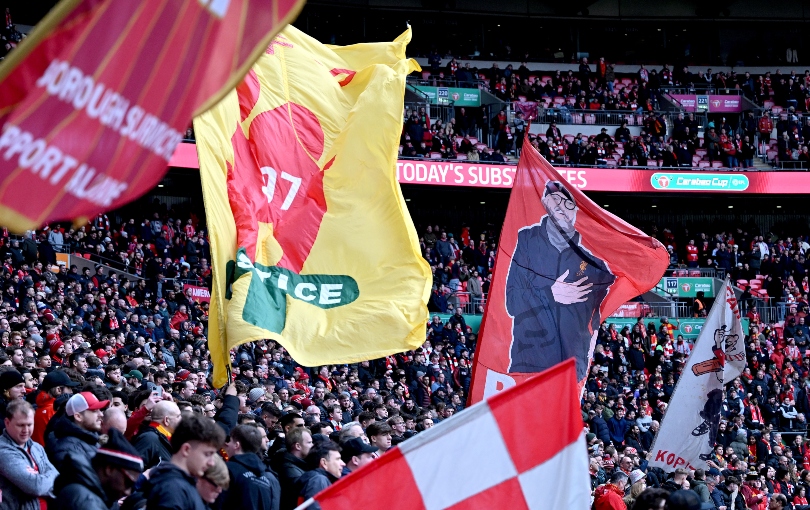
At the Carabao Cup final on Sunday, it was noticeable how many Liverpool fans decided to boo the national anthem when it was played before kick-off.
But this is nothing new. As a club, Liverpool have a difficult relationship with the rest of England, with their fans often describing themselves as, “Scouse, not English” and vocal dissent of the national anthem stretching back 40 years.
But why is this?
Why do Liverpool fans boo the national anthem?
As a city, and a club, Liverpool has a long history of opposition to the establishment, including the monarchy. Booing of the national anthem became commonplace during the 1980s as Margaret Thatcher's Conservative government routinely failed to address serious problems in the city.
Their policies led to rising inequality and unemployment throughout the country, but especially in the industrial north.
Liverpool was keenly affected by these problems and the shameful response to the Hillsborough disaster reaffirmed this belief that working-class communities were being deliberately neglected.

A substantial portion of the Reds fanbase continues to feel ignored by the state and sees booing the national anthem as an effective way to get that view across. Sunday's final was just the latest example in a longstanding tradition of Liverpool supporters showing a hostile attitude towards the establishment.
On the day of King Charles II's coronation, under guidance from the Premier League, the club decided to play the national anthem at Anfield despite knowing the negative response it would provoke.
“It was clear something like this would happen, everybody knew it,” said Jurgen Klopp, following that incident last year.
“That is fine, nothing else happened, there were no chants. Thank God we have the freedom of free speech and freedom of opinion.”
More Liverpool stories
How Liverpool keep finding one way to win in this three-way title race
Liverpool legend Xabi Alonso to choose Bayern Munich over Reds: report
Liverpool have 'sent contract offer' to Kylian Mbappe, ahead of blockbuster move this summer: report







